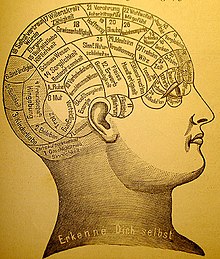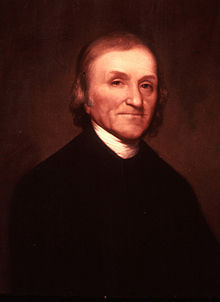Musing with WikiProject Philosophy



This week, we chat with WikiProject Philosophy. Started in April 2004 by Adam Conover, the Project is home to 15,502 assessed articles, with 44 Featured articles, 2 Featured lists and 70 Good articles. In addition to 11 philosophy-related portals, the Project has some 20 Task forces. It currently has 250 participants. The Signpost interviews project members Rick Norwood and Walkinxyz.
Rick has been on Wikipedia since June 2005, and is interested in algebraic topology, 1950s science fiction, and comic strips. He says that he is a mathematician, not a philosopher, "so my editing is based on my reading". Walkinxyz has been a Wikipedian since November 2009: "I was a student of film at university, and the most interesting classes ended up in fact not being not my films classes – a lot of film theory is horribly, painfully dry – but philosophy classes, especially the ones that looked at films in terms of their contributions to philosophy. In other words, thinking of film itself as embodying "philosophy in action". People like Stanley Cavell and Stephen Mulhall have written important things about this. Aside from an interest in film, I'm interested in political philosophy, and how it relates to cultural issues. A number of my contributions to Wikipedia have drawn heavily on the ideas of people in the Frankfurt School tradition of Critical Theory, especially Nikolas Kompridis, who was a teacher of mine."
Your project has over 15,502 articles associated with it. How does the project keep all these up to standard, and what are its biggest challenges?
- Rick Norwood: The biggest challenge is editors who have a hobby horse to ride, and have trouble understanding the difference between major and minor topics.
- Walkinxyz: I would suggest that a big problem, in a way related to Rick's issue, is articles which contain some very specialized information where one particular discipline in philosophy has come to dictate the meaning of a term, for example, Argument as a term in logic, rather than a broader conception of philosophical argument as such.
- Another challenge is that editors don't usually know one another, and can't talk face to face about what the priorities should be, or what direction a particular article should take. Wikipedia is very good for publishing and correcting important information quickly, and for encompassing large amounts of information over a long period of time… but it isn't always good for identifying what, overall, needs attention. I'm not sure how it could do this, aside from individual editors bringing real-world concerns about the topics that interest them, and trying to make a go at improving them. Ideally, a relationship is formed between editors, however tenuous. And you start to value what other people do, they you, and so on.
- I think a forum like this is important, too, so that people can articulate issues that could be relevant to the broader community, not just the niche of philosophy. Kompridis writes that philosophers do not understand their task by reading philosophy, but from problems in the real world. I think the same is true of Wikipedia. We do not get our task from reading databases of knowledge, however good, but from the contexts in which that knowledge is shared, used, etc. So, for example, in the last half-year the article on democracy, has become very important, and being mindful of that, people have been trying to make some improvements. Of course, it was already a pretty good article, but that's only [because] so many people care about the concept and institutions of democracy.
WikiProject Philosophy has 44 FA-class articles, 2 FLs, and 70 GA-class articles. How did your Project achieve this and how can other Projects work toward this?
- Rick Norwood: The big advantage is that most of these articles do not attract the nuts. Or maybe I should say, the nuts here are at least highly educated nuts. The biggest problems on other big projects: "the best lack all conviction, while the worst are filled with passionate intensity".
- Walkinxyz: I'm not sure what to say about this. I think Rick was being ironic about other projects, although I can't be totally certain. I respect his cynicism, but I can't really explain why these articles, in his words, "do not attract the nuts." Another way to look at it is that we have over 15,000 articles that are none of those categories. How guilty do I feel about writing answers to this interview, instead of working on them? I may never know.
Have you seen any talk-page conversations about Wikipedia articles veer off into deep discussions about philosophy? How does the project deal with editors seeking to use Wikipedia as a forum?
- Rick Norwood: Not really, though I've seen them veer off into shallow discussions about philosophy. Those interested in deep discussions understand that Wikipedia is not a blog.
- Walkinxyz: Wikipedia is not a soapbox, a blog, or a forum, but it can be very valuable as a place to introduce people to ideas that they hadn't considered. And like any community, certain things matter to people, some more than others, and a few things matter a great deal. And people for whom things matter a great deal naturally want to get their point across if they have one. I would say a lot of the discussions here are a result of the concern or interest that people have in maintaining the standards of the community. However, Wikipedia is a consensus-based community, so these things are continually subject to questioning. That includes ethical, moral and political issues of all kinds. And epistemological questions, which in an archive of knowledge will always be an issue. So the thing about editing philosophy articles on Wikipedia, is that the process itself becomes self-conscious, which can lead to very productive discussions. Alternatively, it can lead to bickering and endless guideline-citing. Which is at least as big a danger as "deep discussions about philosophy." (Are such discussions every really a danger, and if so, to whom?).
Does WikiProject Philosophy collaborate with other WikiProjects?
- Rick Norwood: I've seen some overlap with WikiProject Mathematics.
- Walkinxyz: There is an editor trying to do some work to combine certain efforts of WikiProject Religion with the Philosophy project, too. There should probably be more of this, in my opinion.
Your project has some 20 Task forces. How does the Project manage these?
- Walkinxyz: It seems more appropriate that a task force would manage a project, not the other way around. But that doesn't answer your question, I suppose.
Anything else to add?
- Rick Norwood: " Habe nun, ach! Philosophie; Juristerei und Medizin; Und leider auch Theologie; Durchaus studiert mit heißem Bemühn. Da steh ich nun, ich armer Tor! Und bin so klug als wie zuvor."
- Walkinxyz: "Philosophy's virtue is responsiveness. What makes it philosophy is not that its response will be total, but that it will be tireless, awake when the others have all fallen asleep. Its commitment is to hear itself called on, and when called on – but only then, and only so far as it has an interest – to speak." – Stanley Cavell
Next week, we'll be heading to the crossroads of the
Pannonian Plain,
Balkans, and
Adriatic Sea. Until then, sing
Our Beautiful Homeland in the
archive.


Discuss this story
Wooh, philosophy! ~~ EBE123~~ talk Contribs 20:05, 27 July 2011 (UTC) reply